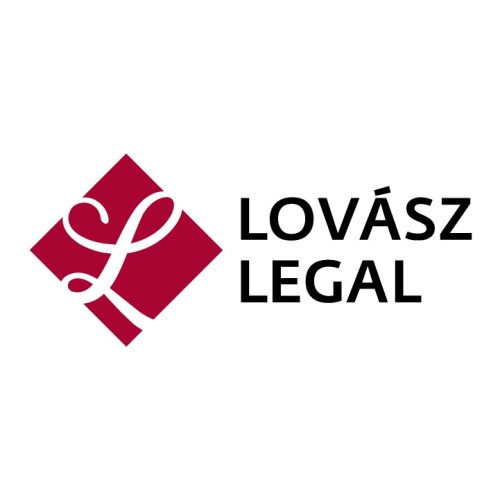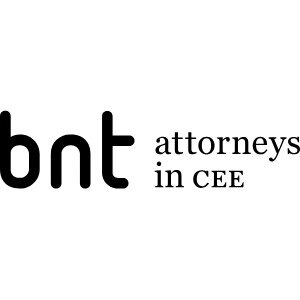Best Tax Increment Financing Lawyers in Slovakia
Share your needs with us, get contacted by law firms.
Free. Takes 2 min.
Or refine your search by selecting a city:
List of the best lawyers in Slovakia
About Tax Increment Financing Law in Slovakia
Tax Increment Financing (TIF) is a financing method used to encourage urban development and infrastructure improvement in designated areas of Slovakia. TIF captures the future tax benefits of real estate improvements to support the costs of those improvements. Developers, municipalities, and governmental agencies collaborate to enhance underdeveloped areas by diverting future property tax revenue from a defined area to fund improvement projects within that area. This tool aims to stimulate economic growth and attract investment by offsetting initial development costs.
Why You May Need a Lawyer
While Tax Increment Financing offers several benefits, navigating its complexities often requires legal expertise. Common situations necessitating legal assistance include:
- Understanding and negotiating TIF agreements, particularly when multiple stakeholders are involved.
- Complying with regulatory requirements and understanding the intricacies of Slovakian TIF law.
- Resolving disputes between developers, local governments, and other interested parties.
- Structuring financing to ensure it aligns with both local laws and the financial goals of the involved parties.
- Applying for and obtaining necessary permissions and grants associated with a TIF project.
Local Laws Overview
In Slovakia, Tax Increment Financing is governed by specific regulations that define how it can be implemented. Key aspects include:
- Designated areas: TIF is applicable only in officially designated areas, usually places that need revitalization.
- Duration: Projects have a set period during which the tax increment is directed to finance improvements.
- Eligible projects: Only certain types of projects, generally related to infrastructure and public benefit, qualify for TIF.
- Municipal involvement: Local governments play a critical role in approving and overseeing TIF initiatives.
- Public consultation: Participation and input from local communities are often integral to the TIF approval process.
Frequently Asked Questions
What is the primary objective of Tax Increment Financing in Slovakia?
The primary objective is to stimulate economic development in underdeveloped or blighted areas by using future tax revenues to support current development projects.
Who can initiate a TIF project in Slovakia?
Typically, local governments initiate TIF projects, but developers and other private entities can propose projects in collaboration with municipalities.
Are there restrictions on how funds from TIF can be used?
Yes, funds from TIF must be used for approved public infrastructure and redevelopment projects, relating specifically to the designated improved area.
How long does a typical TIF project last?
The duration of TIF projects varies but typically ranges between 15 to 30 years, depending on the project's size and scope, as well as the agreement terms.
Can TIF be used for any type of development?
No, TIF is generally restricted to public infrastructure projects and specific types of development that offer public benefits.
What kind of public involvement is there in TIF projects?
Public consultation is often required, allowing community members to provide input and feedback on proposed TIF projects before they are approved.
Is there any risk involved with TIF funding?
Yes, like any financing mechanism, TIF carries risks, such as overestimating tax increment projections or project cost overruns.
How is the tax increment determined?
The tax increment is the difference between the amount of property tax revenue generated before the project and the amount generated after improvements.
Are there limits to the number of TIF projects that can be undertaken?
While there's no strict cap, practical constraints such as local government capacity and financial considerations can limit the number of active TIF projects.
Can businesses directly request a TIF project for their development?
Businesses can propose TIF projects, but these must align with public objectives and be approved by local governments.
Additional Resources
For more information and support, consider these resources:
- Ministry of Finance of the Slovak Republic: Provides guidelines and regulations regarding TIF.
- Local government offices: Direct contact for queries and applications related to TIF projects.
- Professional Associations: Organizations like the Slovak Association of Towns and Villages offer resources and support related to municipal financing initiatives.
- Legal and financial advisors specializing in public finance and real estate development can offer expert guidance.
Next Steps
If you are considering pursuing a TIF project or require legal assistance, follow these steps:
- Research and understand the potential scope and requirements of your project.
- Consult with a legal professional specializing in Slovakian public finance and real estate law.
- Collaborate with local government officials to understand municipal requirements and seek their support.
- Gather necessary documentation and develop a solid proposal that outlines the benefits and feasibility of the project.
- Engage with community stakeholders to foster support and ensure compliance with public consultation requirements.
Lawzana helps you find the best lawyers and law firms in Slovakia through a curated and pre-screened list of qualified legal professionals. Our platform offers rankings and detailed profiles of attorneys and law firms, allowing you to compare based on practice areas, including Tax Increment Financing, experience, and client feedback.
Each profile includes a description of the firm's areas of practice, client reviews, team members and partners, year of establishment, spoken languages, office locations, contact information, social media presence, and any published articles or resources. Most firms on our platform speak English and are experienced in both local and international legal matters.
Get a quote from top-rated law firms in Slovakia — quickly, securely, and without unnecessary hassle.
Disclaimer:
The information provided on this page is for general informational purposes only and does not constitute legal advice. While we strive to ensure the accuracy and relevance of the content, legal information may change over time, and interpretations of the law can vary. You should always consult with a qualified legal professional for advice specific to your situation.
We disclaim all liability for actions taken or not taken based on the content of this page. If you believe any information is incorrect or outdated, please contact us, and we will review and update it where appropriate.
Browse tax increment financing law firms by city in Slovakia
Refine your search by selecting a city.

















